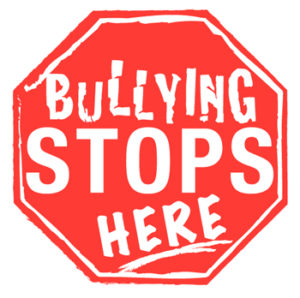 Don’t Let Back to School Be Back to Bullying.
Don’t Let Back to School Be Back to Bullying.
For many children, the anxiety of a new school year is not of nervous excitement but severe concern of potential bullying.
We live in a society where bullying is prevalent among authority figures, adults in the workplace, and even at home. Helping your child identify what bullying is, informing them of the best actions to take when facing a bully or witnessing the behavior, and acting as a role model can mitigate the impact of bullying.
What Does Bullying Look Like?
There are many different types of bullying; physical, verbal, psychological, cyberbullying, sexting, sexual, and/or targeting others based on their religion, ethnicity, race and/or sexual orientation. Bullying is NOT the occasional teasing or name calling, bullies engage in frequent, ongoing attacks aimed at controlling, humiliating, and hurting others. Any child can be bullied, and many children who have been victimized by others, become bullies in turn.
You’re No Bully, But Are You a Bystander?
Bullies and victims are the minority in comparison to the bystander. A bystander watches bullying, both face-to-face incidents and cyberbullying, and does not intervene to deescalate the situation, help the victim or report the behavior. Bystanders enable bullying by sending a message that they accept the behavior.
What Can I Do To Send The Right Message To My Children?
- Be a role model. Be mindful of how you act towards others including peers, other parents, co-workers, family members and spouses. Children pick up on the behaviors of those around them.
- Do not tolerate bullying in your family. Teach siblings positive ways to manage difficult emotions so they do not lash out at each other.
- Do not minimize bullying. If your child reports an incident of bullying, do not brush it aside, whether they are the victim, the bystander, or the bully. Teach children how bullying impacts the feelings and self-worth of victims.
- Be anti-bully. Teach your children to discourage the bully. Educate your children in safe methods of supporting the victim without engaging the bully or giving into their attention. Encourage your child to reach out to victims and have others do the same.
- Be informed on resources. As a parent, understand what your child’s school is required to do in bullying situations and advocate for your child.
If you or your child is struggling with the effects of bullying or you are concerned your child is exhibiting bully behavior, JFCS can help. JFCS offers confidential counseling for individuals and families for a range of concerns including anxiety, self-esteem, coping and more. Contact our offices at 609-987-8100.
Where Can You Learn More?
http://www.state.nj.us/education/students/safety/behavior/hib/
http://www.state.nj.us/education/students/safety/behavior/hib/ParentGuide.pdf
https://bullies2buddies.com/resources/the-new-jersey-bullies-to-buddies-training-center/
https://www.njea.org/issues/anti-bullying/


